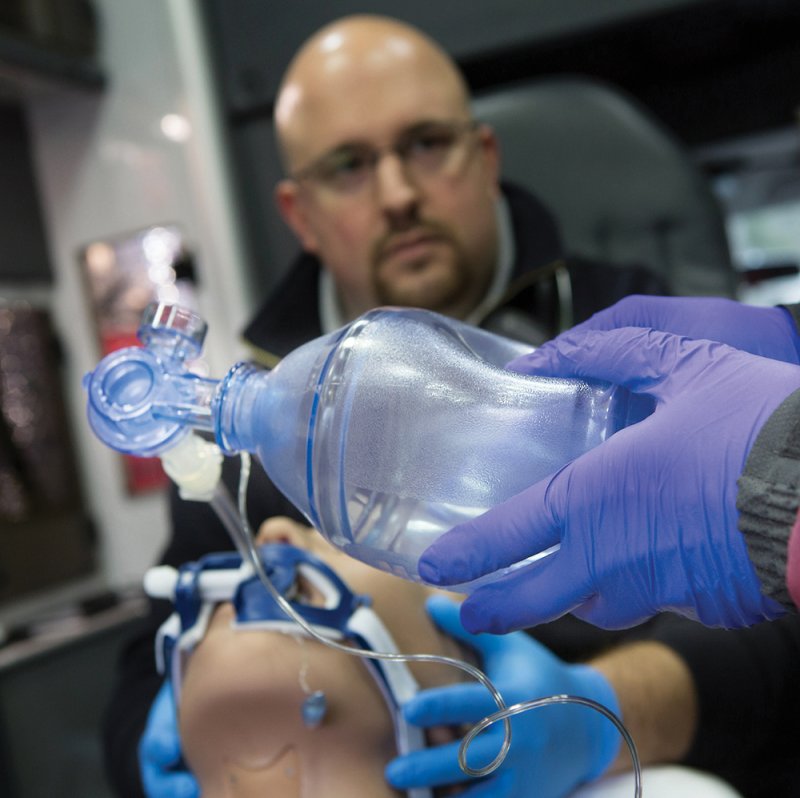
From nurses to insurance agents, to electricians and court reporters, tens of thousands of licensed and certified professionals across NH must meet continuing education (CE) requirements. In the health-care arena alone, around 40,000 must find the time to keep their knowledge base current.
Credit requirements are set by state law and can demand up to a dozen or more hours annually in specialized training in safety, ethics, new standards or regulations. The content is often set by a state agency or a professional association and is usually approved by a state board or commission.
Fitting in even a few hours of training a year amid the ongoing workforce shortage can be a challenge and some companies have taken matters into their own hands by offering continuing education opportunities in house.
So Much Homework
One of the heaviest burdens for continuing education is placed on educators, with all teachers required to clock 45 hours of professional development aligned with the NH Professional Education Requirements and an additional 30 hours for specialty areas.
For example, according to the NH Department of Education, if an individual has three areas of expertise, such as general special education, learning disabilities and elementary education, they would need a total of 135 continuing education units (or hours of a qualifying activity) to renew their credentials. As with other occupations, credits can be earned through conferences, seminars and online courses.
In most districts, there are professional development plans and coordinators who develop institutionally relevant content.
Health Care
In healthcare, there are many disciplines required to earn CE credits, especially nursing. Heidi Paradis, director of education and nursing research at Catholic Medical Center (CMC) in Manchester, says the hospital is approved through the American Nursing Credentialing Center to be a CE provider and has offered thousands of hours of training in the past year.
“There are other opportunities outside the hospital as well. We encourage staff to belong to professional associations, such as the Critical Care Nurses Association. We even reimburse membership fees to encourage participation,” Paradis says.
“Inhouse, we gear education to respond to the annual needs assessment and focus on what is required by regulatory bodies.”
She says they also create training around organizational initiatives and are always working on quality and safety. CMC is sponsoring an opioid conference in November, which, Paradis says, will help physicians acquire newly required credentials.
CMC offers classroom and online training. “Staff really like the hybrid model that allows them to get some of the learning done ahead of time, spending less time in class. We use a learning portal to track requirements and achievements.”
At Portsmouth Regional Hospital, parent company HCA provides access to an array of online learning opportunities says Megan Gray, market director of professional development programs.
“Across the different professions of nursing, nursing assistants, respiratory therapists and physical and occupational therapists, we offer a variety of educational services, both live and online,” she says. “There are lectures, medical grand rounds, nursing grand rounds, lunch-and-learn and hospital staff are very willing to share their knowledge.”
Gray says even when time is short, staff members are always open to learning and they are willing to go beyond the minimum requirements to grow professionally.
Emergency medicine has one of the most demanding set of CE requirements. Nick Mercuri, chief of fire and EMS strategy and planning for NH, says the state uses the National Registry of EMTs as a certification/recertification body.
For each level, from emergency medical responders (EMRs) to emergency medical technicians (EMTs) and from advanced EMTs to paramedics, there is a set of CE requirements ranging from eight to 30 hours every two years. Training focuses on airway/respiration/ventilation, infectious disease, trauma triage and mass casualty incidents. Credits can be earned online or in the classroom and in field exercises and emergency response drills.

EMTs training on airway techniques. Courtesy of NH Dept. of Safety.
Insurance
Property and casualty producers (agents who sell home and auto policies) are required to take 24 hours of training every two years. “We take all or most of our courses through the New Hampshire Association of Insurance Agents (NHAIA), which offers courses at the association office in Concord,” as well as webinars conducted by Judith Durst, director of education for NHAIA, says Greg Eastman, owner/agent at Hunkins and Eaton Insurance in Littleton and Lisbon.
Christopher Nicolopoulos, president and CEO of the NHAIA, says in addition to offering hundreds of hours of approved courses, the association monitors legislation and regulation changes throughout the region and adjusts training accordingly.
“It’s really important for agents to be up to speed on changes in the law and best practices,” he says. “Continuing education provides important industry training as people change roles within the industry and it ensures that everyone is staying educated and current.”
The NH Insurance Department has final approval of credits and Durst creates the course material, which allows the content to be dynamic. “For example, when it comes to Uber, Lyft, Airbnb and even drones, there are important questions [asked],” says Nicolopoulos. “What type of losses are covered if you are using your car for ride-sharing or running an Airbnb? We are training agents so we know what to ask to make sure people have the coverage they need.”
Training also includes requirements that need to be met in neighboring states. A Derry agent might be writing policies in Massachusetts. “You’d be hard-pressed to find an agency that doesn’t have at least some clients with second homes in nearby states,” says Nicolopoulos.
Training to Maintain Workforce
With the workforce shortage, ReVision Energy in Brentwood, a solar installation company, opened a school to train new electricians as they could not find enough experienced applicants. To further support those workers, they are also providing CE training opportunities.
Nathan Poland, director of ReVision Energy Technical Center and electrical coordinator, says the majority of training is centered on the National Electrical Code, which is updated every three years. Electricians are required to undergo 15 hours of training based on the code.

Other professions requiring licensing or certification and a CE component include funeral directors, geologists and foresters. According to Rick Wisler, a state administrator who oversees CE certification requirements in several areas, the professional associations are well placed to help define the training each year as they, “have a good grasp of what’s needed in
the industry.”
Another option for CE training are colleges. Community colleges offer professional development classes through business training centers, says Scott Power, director of outreach and communications for NH College & University Council.
At Granite State College in Concord, there are one- and three-day workshops, online options and custom programming, as well as assessing. “We work directly with employers to provide professional development and help achieve workforce development goals,” says Jacqui Lantagne, associate director of marketing. “If they have their own training, we can go in and assess the training for college level equivalency.”
UNH offers thousands of short-form events, such as workshops, bootcamps, conferences and webinars. UNH Professional Development and Training enrolls more than 4,000 students and issues more than 400 certificates a year.

 Current Issue - April 2024
Current Issue - April 2024